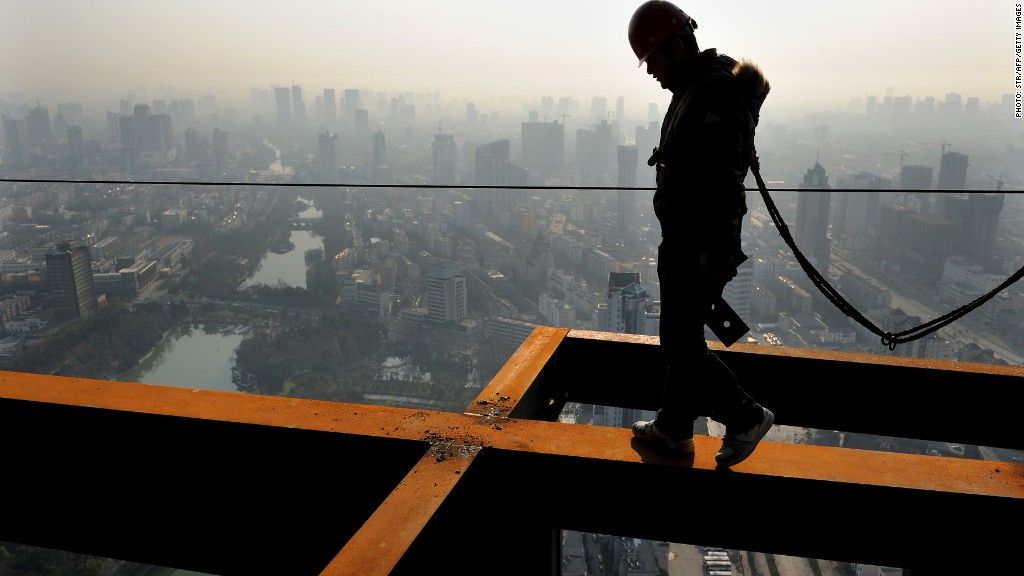
Economists at Nomura have made their call: China's property bubble has burst, they say, and the country's economy could slow dramatically unless Beijing steps in with new stimulus measures.
"It is no longer a question of 'if' but rather 'how severe' the property market correction will be," three of the bank's analysts say in a new report. "We are convinced that the property sector has passed a turning point."
Analysts at the Japan-based broker are among the most critical of China's property sector, which has powered ahead for years despite frequent warnings that a collapse is just round the corner.
Skeptics say the real estate sector is emblematic of problems such as rapid credit expansion and policies that promote short term growth over a more balanced economy. The building rush means property supply now outstrips demand in some parts of the country.
Bulls counter that the boom is sustainable, especially as hundreds of millions of Chinese migrate into urban areas.
The size of the sector -- somewhere between 15% to 25% of the economy -- underscores the importance of the debate for a world that is increasingly connected to China.
Related: Why China hates being No. 1

While most analysts agree that the market in smaller cities is softening, the Nomura team argues the problem is widespread and systemic.
Data show the number of new homes under construction has fallen by around 25%, and the number of property sales has dropped dramatically. Prices are weakening too, especially in small and medium cities.
Adding to the risks of a slowdown, developers are having trouble securing financing and property investment dropped off in the first quarter.
Related: Fears grow over China property flameout
The analysts argue that four provinces -- Heilongjiang, Jilin, Gansu and Inner Mongolia -- are the canaries in China's coalmine. In each of these districts, property investment growth turned negative and industrial production slowed in the first quarter. In Heilongjiang, near the Russian border, property investment declined 25% over the previous year.
Nomura expects GDP to slow to 6.8% by 2015, and forecasts a one-in-three chance that growth will fall below 5% for four consecutive quarters -- the much feared "hard landing."
If the property market slows as Nomura predicts, China's trading partners will suffer. Exporters that supply the raw materials and equipment used in construction would be particularly hard hit.
Related: Top 10 U.S. cities for Chinese homebuyers
Nomura said Beijing is likely to loosen monetary and fiscal policy in the coming months in an effort to support the sector. Local governments are also also likely to lend help.
These measures may help in the short-term, but will do little to correct structural imbalances in real estate, the analysts said. "Painful adjustments in the sector seem inevitable in the longer run," they wrote.
Other analysts are more optimistic. Economists at UBS said in a research report issued Monday that while they are increasingly worried about a property bubble, government action will prevent the worst.


